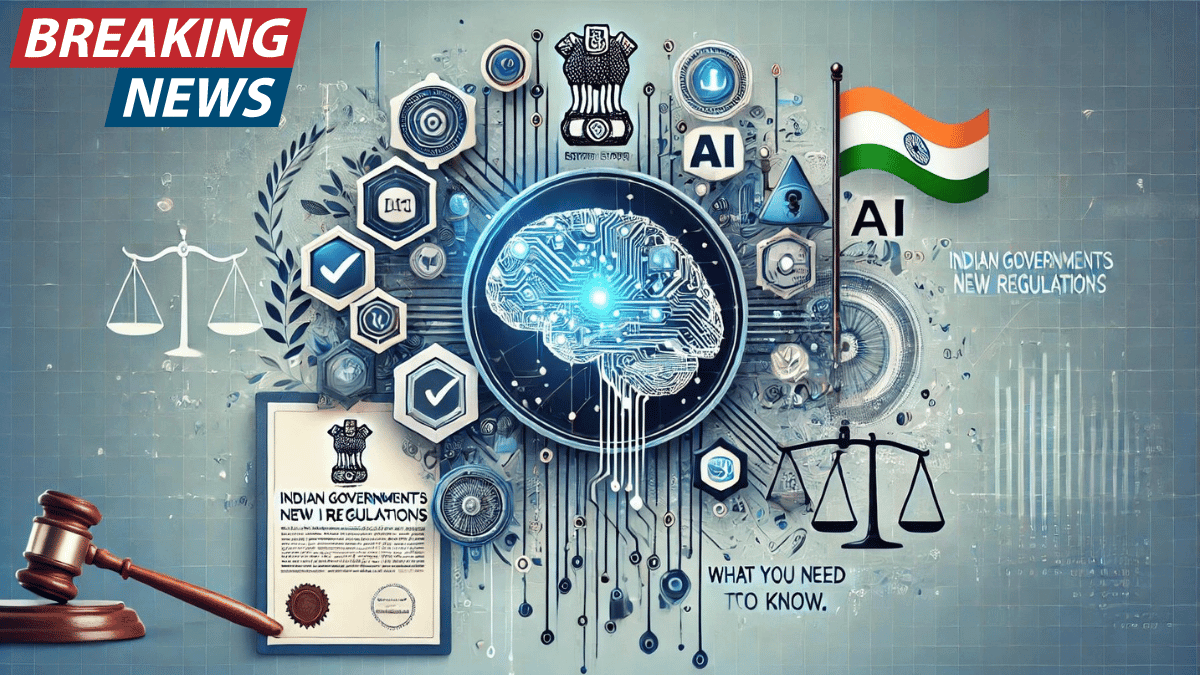
The Indian Ministry of Electronics and Information Technology (MEITy) has introduced new guidelines to regulate the application of Artificial Intelligence (AI) tools. These guidelines aim to ensure that AI applications are used responsibly, particularly when it comes to the authorization procedure for AI models, which are considered unproven or unreliable. Let us go into some of the significant aspects that have come up due to this critical development.
From now on, all platforms within India will have to seek permission from authorities before deploying any AI model classified as untested or undependable. This rule applies to Large Language Models (LLMs) alongside other advanced artificial intelligence technologies. Among other things, one essential requirement is to describe such models as faulty and inform users about potential mistakes.
IT ministry advisory introduces a new regulatory framework for AI platforms operating in India. The exact scope of the regulatory regime has yet to be determined, but these platforms will be subject to more government regulation.
Rajeev Chandrashekar, the Minister of State for Skill Development and Entrepreneurship & Electronics, and Information Technology, India, explains that these regulations are for “significant platforms,” not start-ups. The exception made for new businesses indicates a subtle mode, which appreciates the promotion of invention in conjunction with regulatory controls on existing platforms.
Recent advisory of @GoI_MeitY needs to be understood
— Rajeev Chandrasekhar 🇮🇳 (@RajeevRC_X) March 4, 2024
➡️Advisory is aimed at the Significant platforms and permission seeking from Meity is only for large plarforms and will not apply to startups.
➡️Advisory is aimed at untested AI platforms from deploying on Indian Internet…
The tech industry and experts have mixed feelings about introducing these guidelines. Some think it’s a great move by the government to ensure that AI deployment is done responsibly. Others, on the other hand, are concerned about how this will affect innovation. Critics perceive it as an idea capable of stifling creativity and pointing out uncertainty in what “significant” platforms mean.
The new regulations may have wide-ranging consequences for India’s AI sector. Companies that develop and use AI-based products and services must adhere to these guidelines provided by the government. Compliance with this advisory could involve additional compliance costs and inflexible hurdles.
On the other hand, it is expected to lead to increased public trust in AI technologies. The government intends to deal with such issues by enforcing transparency and establishing a regulatory body that will prevent misuse of data privacy, as well as algorithmic bias, among others.
How companies within the artificial intelligence sector will adjust to these fresh rules still needs to be determined. Though they may create obstacles, these measures allow businesses to indicate their commitment to ethical practices in artificial intelligence while earning customer trust.
The government’s intention in regulating AI is clear – it wants to protect the public interest. However, striking a balance between regulation and innovation is essential. Excessive regulations may kill AI development and hinder India's position as a global AI hub.
Implementing this regulatory framework will require well-defined guidelines, transparency, and a broad consultative approach involving all key industry stakeholders.
In addition to the existing guidelines, the Indian Government is working on a comprehensive framework for AI regulation. This framework, which strives to have an organized way towards developing artificial intelligence (AI), aims to address issues relating to ethics, privacy, and accountability and is anticipated to be launched in June or July 2024.
As this remains a developing story, it's crucial to stay informed about further details and updates regarding the upcoming AI framework. Our team will continue to monitor the situation closely and provide timely updates to keep you abreast of the latest developments in AI regulation in India.